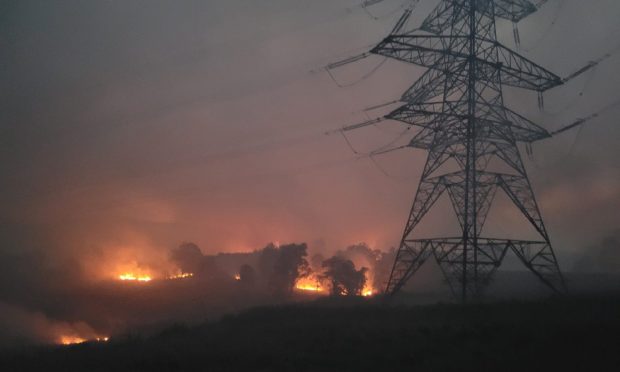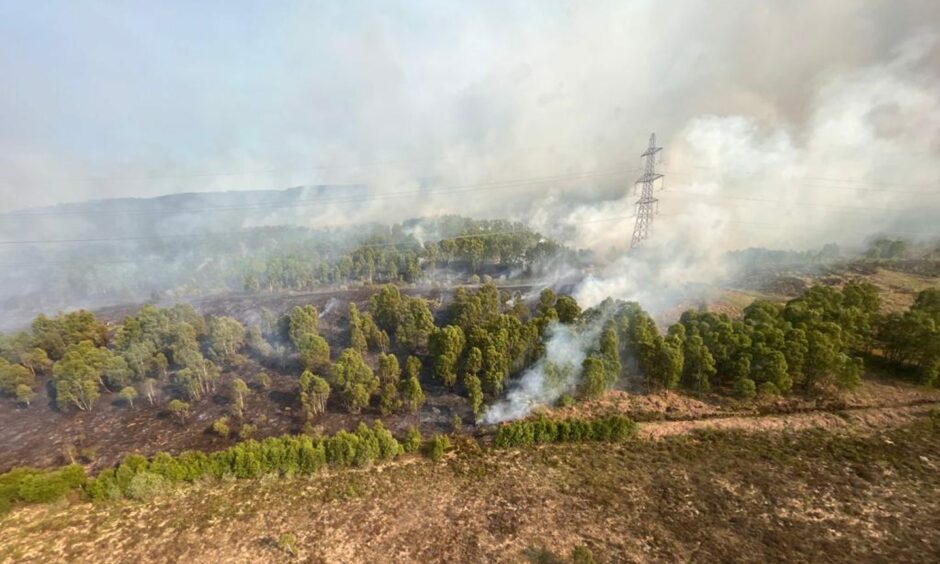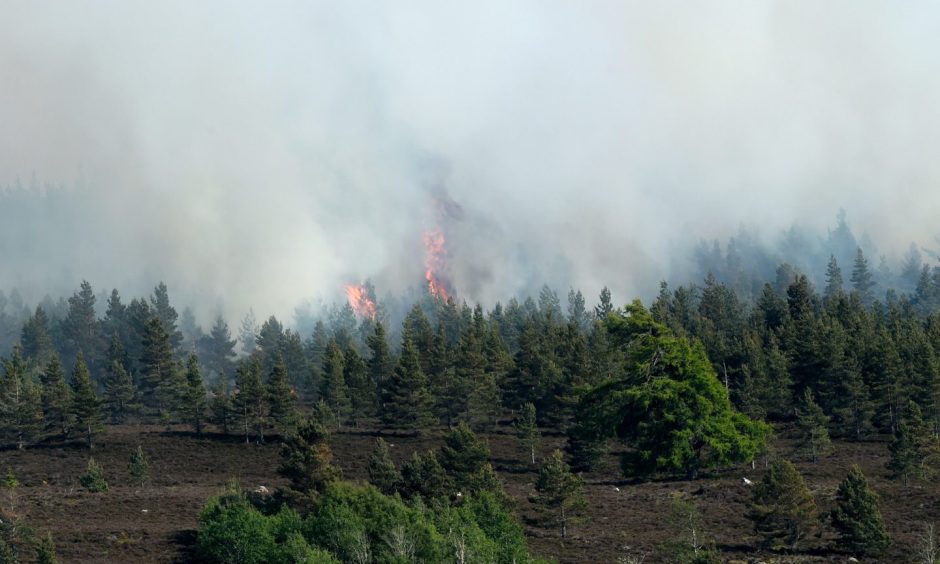Firefighters see Highland estate workers with better equipment for tackling wildfires, according to an Inverness fire union rep.
Tim Kirk made the stark warning at Holyrood, saying the fire service gave them excellent personal protection gear but firefighters are “lagging behind” when it comes to equipment.
The Inverness and North regional rep for the Fire and Rescue Services Association said it was frustrating to see estate workers tackling wildfires with “better equipment then we have”.
He told MSPs on Tuesday: “We still have backpack sprayers and beaters. Beaters have been around since forever.
“We’re seeing leaf blowers effectively used by estate workers and the service have purchased this equipment because the land managers have trialled these and proven these to be effective at wildfires.”
What action is being taken?
A wildfire summit was held in the Highlands by local MSP Kate Forbes last summer.
It was set up after wildfires in Cannich and Daviot left areas of the Highlands blackened and scorched.
The Scottish Fire and Rescue Service launched its wildfire strategy last year, which is currently in the implementation stage.
Its analysis laid bare the financial issues facing the service’s estate which chief officer Ross Haggart described as “insurmountable”.
In total, the backlog amounts to more than £800 million of work needed across fire stations, vehicles, equipment and IT infrastructure, despite an increase in budgets this year.
Deputy Chief Officer Stuart Stevens told MSPs the roll out of the strategy will be completed this year.
He confirmed equipment, including leaf blowers, have been received by the service.
Area Commander Michael Humphreys, the service’s wildfire lead officer, said the strategy is being supported by around £1.6m over three years.
He said: “This includes the provision of all-terrain vehicles, trailers, a range of specialist equipment and PPE, and four 4×4 support vans. These resources form a package which will be deployed together.
“All of our new vehicles and equipment will be deployed to relevant stations once final routine checks and appropriate staff training have been carried out.”



Conversation